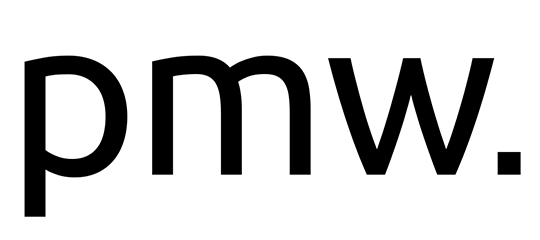Jun10 2012
How to optimise a web-page for search terms (keywords)
Keywords are the search terms Internet users enter into a search engine such as Google, Yahoo and Bing when they are searching online for a product or service. They can be as generic as "office furniture" or as specific as "complete office fitouts in Melbourne". If you would like to improve the search engine rankings of your website, using the most appropriate keywords in your web-pages is an important first step.
When a user types in a keyword, the search engine retrieves relevant web-page listings. Pages that have content that closely match or contain the search term are shown. Search engine rankings are based on many factors, but one of the most important is keyword relevancy. As such, using relevant keywords on your web-pages can result in better rankings for the search term used. In this article, we discuss how to use keywords in optimising your web-pages and achieving a better search engine ranking for your website pages, content, products and services.
There are several main areas of a web-page that should contain your keywords. These are:
- The page file name
- The title of the web-page, typically shown in the browser across the top of the screen
- Description metatag
- Content Headings (h1-hx tags)
We now discuss each of these in some detail.
Create page-specific page file names
Page file names are the extension that comes after the website's main URL. For example, in http://www.grapples.com.au/log-grapples-for-excavators.htm, log-grapples-for-excavators.htm is the page file name. A page file name is important as the search engines use the file-name as relevant to the content on the page. When a creating page file name, use keywords relevant to the content of the web-page.
When you have two or more words in the page file name, separate the words using a dash as in the example log-grapples-for-excavators. In this way, your web-page will show in search results even when variations of the search term "log grapples for excavators" such as "log grapples", "grapples for excavators" and "log grapple excavators" were used.
Use keyword rich page titles
Titles give Internet users an insight into what a web-page is about and its relevance to their enquiry. It can often be the deciding factor for a user to click through to the website or not, so it is important to provide a descriptive and unique page title to each web-page. In the example below, "Self Bunded Tanks - DTE Group" is the descriptive page title, which gives a user the information that the web-page is about, e.g. self bunded tanks.

Aside from being relevant, a page title should also be concise. Avoid over stuffing the title with keywords. Using one or two descriptive keywords is better than providing a long list of keywords. In the opinion of IdeaBank (not Google), there is no need to include the navigation or branding information in the title of a web-page. For example, when you are creating a title for the home page, there is no need to include Home, as this is not a keyword a user would be searching for. In the example below, only the keyword "Website Marketing Perth" is in the title.

Create clear and useful meta descriptions
A meta description provides a summary of the web-page's content and can give users a more accurate description of what a web-page is all about. A good meta description can improve click through to your website so make sure you are providing a useful, readable and quality description that will invite users to click on your web-page. In the example below, the meta description provides a clear insight of what the business and their website offers.

Avoid merely overstuffing the meta description with keywords. Keep in mind that it's about conversion and click through from the results page, not just about keyword optimisation. Less is more - really focus on one or two keywords per page. We have had the most success in ranking when we focus on one keyword per page. Also, the most important keywords should appear at the start of the meta description. In the example provided above, the keyword "office fitouts Melbourne" is placed at the beginning of the description.
Make sure that every page on your website has a page-specific meta description. Avoid creating identical descriptions for different web-pages as these are not helpful for search results wherein individual pages appear and may harm your rankings. Create meta descriptions that accurately and uniquely describe the content of each web page.
Meta descriptions are usually followed by meta keywords but search engines today no longer pay attention to meta keywords as they have been long misused to manipulate search results. As such, there is no need to list down meta keywords. Focus instead on providing accurate and keyword rich meta descriptions.
Include your keywords in the website content
Optimise your website content for keywords your customers are searching for. For example, if your business provides "used cars", then make sure that the keywords "used cars" are used widely and appropriately in your website content. As in the title and meta description, avoid overstuffing your content with keywords.
In particular, ensure keywords are used in your header tags. However, this should not be done if this takes anything anyway from the readability of the content. In the example below, the keyword "water management" is properly used in the heading and in the content.

Keywords selection
So how do you know which keywords to optimise your web-pages for to improve search engine rankings? How do you select the right keywords for your business? We provide the following tips in selecting keywords:
- Put yourself in the position of your users. When potential customers are searching for your products and services, what keywords are they most likely to use? For example, if you are a hotel in Wagga Wagga, travellers to your city will most probably use the search terms "hotel Wagga", "motel Wagga", "accommodation Wagga". Think about your potential clients when determining your keywords.
- Keywords with two to three words are best. Single word search terms are not specific enough and very difficult to rank for. Keywords longer than 3 words typically don't have many searches so in many cases (not all) are not worth the effort in trying to rank for in natural search.
- Bear in mind, on average the greater the number of words in the search term, for example "affordable hotel in Wagga Wagga", the higher the conversion rate or the more likely the potential customer will make an enquiry or purchase what your are offering. However, typically the greater the number of words in the search term the less searches are made for this term.
- Consider variations of your keywords. Users will search for a product or service using a range of search terms. For example "Wagga hotel", "hotel in Wagga", "hotel Wagga Wagga", "Wagga Wagga hotel" and "hotel in Wagga Wagga" are variations of the keyword "hotel Wagga".
- Add your location if appropriate. If you are marketing to a specific region or if you want to rank for local searches, then include the location in your keywords. For example, if you are a tractor dealer in Perth, you can use "tractors for sale perth" or "tractors perth" if your target market is within that location.
- Note that in some cases the term "hotel wagga" and "wagga hotel" are treated as separate terms. It is not possible to optimise your website for every term, so be sure to pick the most popular term.
- Actually go to a search engine and try to determine relevant keywords. See what results come up, are they relevant, and also check the keywords that Adwords advertisers are marketing on.
- Use the free Google Adwords keywords tool to determine the popularity of keywords. It can be a useful tool in initially selecting one keyword from another, as an approximate number of searchers per month are given.


